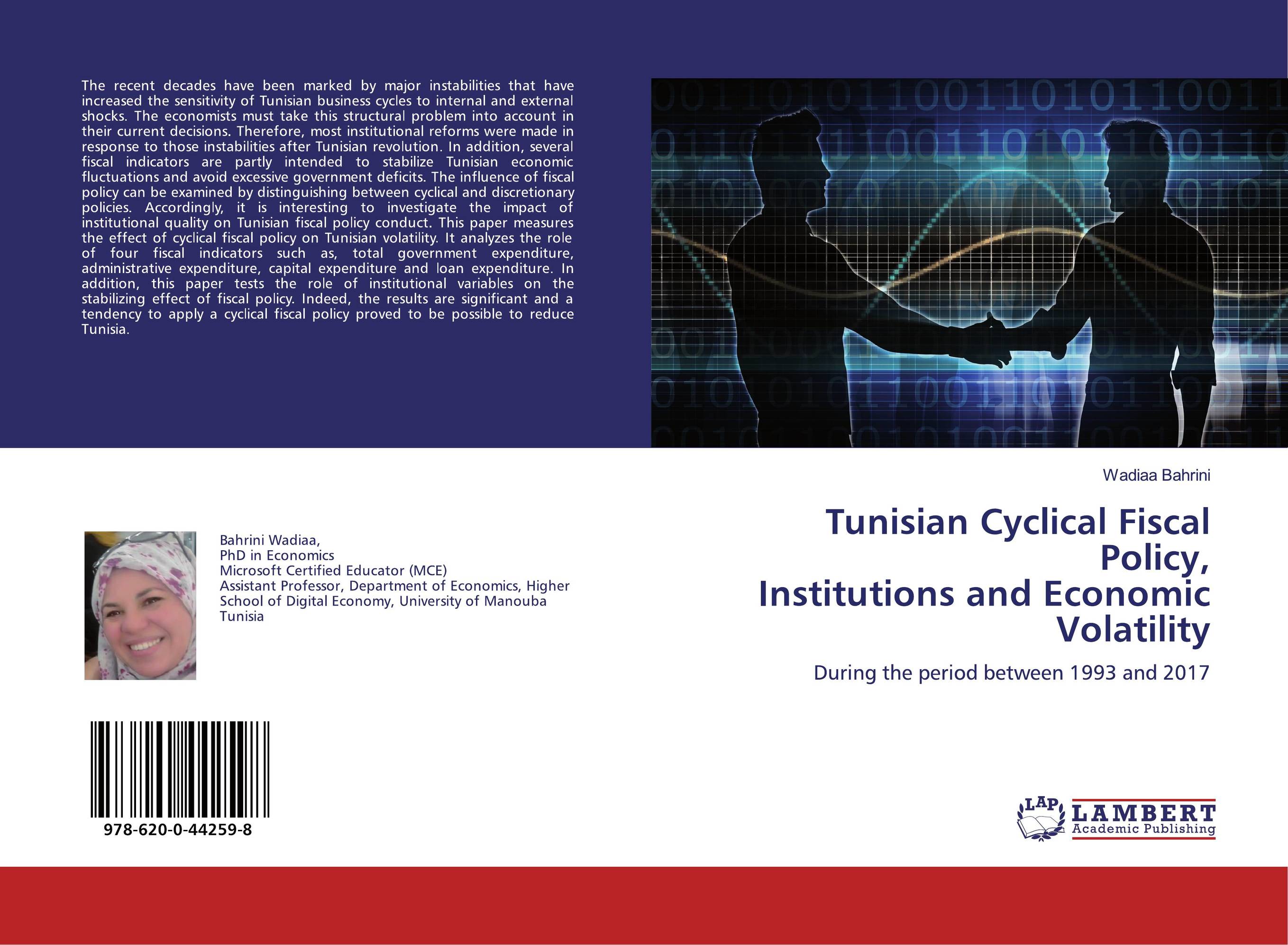| Поиск по каталогу |
|
(строгое соответствие)
|
- Профессиональная
- Научно-популярная
- Художественная
- Публицистика
- Детская
- Искусство
- Хобби, семья, дом
- Спорт
- Путеводители
- Блокноты, тетради, открытки
Tunisian Cyclical Fiscal Policy,Institutions and Economic Volatility. During the period between 1993 and 2017

В наличии
| Местонахождение: Алматы | Состояние экземпляра: новый |

Бумажная
версия
версия
Автор: Wadiaa Bahrini
ISBN: 9786200442598
Год издания: 2019
Формат книги: 60×90/16 (145×215 мм)
Количество страниц: 56
Издательство: LAP LAMBERT Academic Publishing
Цена: 23066 тг
Положить в корзину
| Способы доставки в город Алматы * комплектация (срок до отгрузки) не более 2 рабочих дней |
| Самовывоз из города Алматы (пункты самовывоза партнёра CDEK) |
| Курьерская доставка CDEK из города Москва |
| Доставка Почтой России из города Москва |
Аннотация: The recent decades have been marked by major instabilities that have increased the sensitivity of Tunisian business cycles to internal and external shocks. The economists must take this structural problem into account in their current decisions. Therefore, most institutional reforms were made in response to those instabilities after Tunisian revolution. In addition, several fiscal indicators are partly intended to stabilize Tunisian economic fluctuations and avoid excessive government deficits. The influence of fiscal policy can be examined by distinguishing between cyclical and discretionary policies. Accordingly, it is interesting to investigate the impact of institutional quality on Tunisian fiscal policy conduct. This paper measures the effect of cyclical fiscal policy on Tunisian volatility. It analyzes the role of four fiscal indicators such as, total government expenditure, administrative expenditure, capital expenditure and loan expenditure. In addition, this paper tests the role of institutional variables on the stabilizing effect of fiscal policy. Indeed, the results are significant and a tendency to apply a cyclical fiscal policy proved to be possible to reduce Tunisia.
Ключевые слова: instabilities, institutional reforms, fiscal policy, Volatility, Tunisian economy, Cyclical component, Fiscal indicators, Business Cycle, Crises, persistence, cross-correlations, macroeconomic variables, dating of turning points, Cyclicality, monetary policies, Budgetary policies



